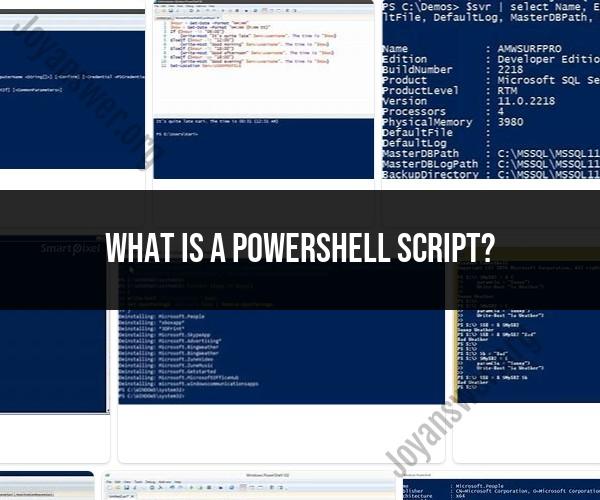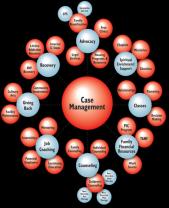What is a PowerShell script?
A PowerShell script is a collection of commands and instructions written in the PowerShell scripting language. PowerShell is a powerful and versatile scripting environment developed by Microsoft primarily for automating administrative tasks and managing various aspects of Windows operating systems and applications. PowerShell scripts allow you to automate repetitive tasks, streamline administrative processes, and perform complex operations with ease.
Here's an overview of what a PowerShell script is and how it works:
1. Scripting Language:PowerShell is both a command-line shell and a scripting language. It provides a consistent syntax and set of commands for interacting with various components of the Windows environment, including files, folders, registry, services, processes, network, and more.
2. Script Structure:A PowerShell script is a plain text file with a ".ps1" file extension. Inside the script file, you write a series of PowerShell commands, each on a separate line. These commands can be simple one-liners or more complex operations involving variables, loops, conditionals, and functions.
3. Execution:To run a PowerShell script, you typically execute it from the PowerShell command-line interface (CLI) or from within other scripts or programs. You can execute scripts by navigating to the directory containing the script file and using the ./ notation followed by the script's filename.
4. Automating Tasks:PowerShell scripts are commonly used to automate tasks such as:
- Managing user accounts and permissions
- Configuring system settings
- Deploying software and updates
- Monitoring system health
- Generating reports
- Managing Active Directory
- Interacting with databases and web services
5. Variables and Parameters:You can use variables in PowerShell scripts to store and manipulate data. Parameters can be passed to scripts when they are executed, allowing for customization and flexibility.
6. Conditional Logic:PowerShell scripts can use if-else statements and switch statements to make decisions based on conditions.
7. Looping:You can use loops like foreach and while to iterate through collections of data or perform actions repeatedly.
8. Functions:PowerShell scripts can define and use functions, allowing you to modularize your code and reuse common operations.
9. Output and Logging:PowerShell scripts can produce output that can be displayed on the screen, saved to files, or used in further processing. You can also implement logging to keep track of script execution.
10. Error Handling:PowerShell scripts can include error handling mechanisms to gracefully handle unexpected issues that might arise during script execution.
11. Extensibility:PowerShell scripts can leverage cmdlets (pre-built commands), modules, and APIs to interact with various Windows components and external systems.
PowerShell scripts are a powerful tool for both system administrators and developers. They offer the ability to automate tasks of varying complexity, making them more efficient and reducing the risk of errors. However, writing effective PowerShell scripts requires understanding the language's syntax, concepts, and best practices. If you're new to PowerShell, there are many online resources, tutorials, and courses available to help you get started and become proficient in using PowerShell for scripting and automation.












